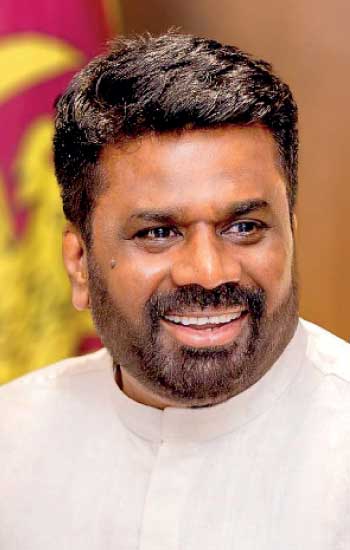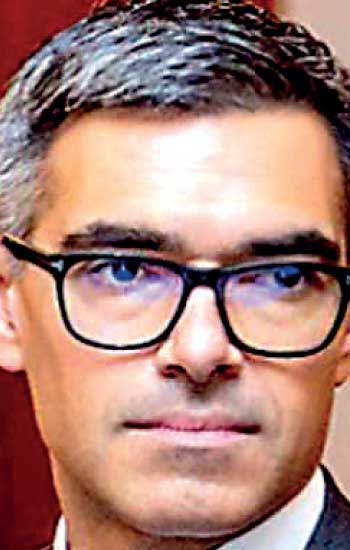IMF backs Sri Lanka’s stability push with fresh approval
Saturday, 26 April 2025 01:36 – – 65
- Staff-level agreement on fourth review reached between IMF and Sri Lanka
- IMF’s Executive Board final approval and release of $ 334 m tranche bringing total to over $ 1.7 b require implementation of prior actions by SL relating to restoring electricity cost-recovery pricing and completion of financing assurances review, confirming multilateral partners’ committed financing contributions and adequate debt restructuring progress
- Reiterates authorities are making good progress in implementing ambitious reform agenda under EFF with commendable outcomes
- States overall program performance strong, with all quantitative performance criteria and indicative targets for end-March met, except for structural benchmark on cost-recovery electricity pricing
- Most structural benchmarks due by end-April were either met or implemented with delay
- Cautions SL on heightened uncertainty amid global shocks and ongoing domestic recovery; suggests contingency measures
- Reiterates sustaining reform momentum and reducing corruption vital to maintain gains, enable inclusive growth
 |
| IMF Managing Director Kristalina Georgieva |
 |
| President Anura Kumara Disanayake |
 |
| IMF Mission Chief for
Sri Lanka Evan Papageorgiou |
International Monetary Fund (IMF) yesterday said a staff-level agreement on economic policies to conclude the fourth review of the four-year Extended Fund Facility (EFF)-supported program was reached with Sri Lanka enhancing the prospect to receive a fresh $ 334 million in financing, bringing the total to $ 1,722 million since March 2023.
Completion of the review by the IMF’s Executive Board requires: (I) the implementation of prior actions relating to restoring electricity cost-recovery pricing and ensuring proper function of the automatic electricity price adjustment mechanism; and (ii) the completion of financing assurances review, which will focus on confirming multilateral partners’ committed financing contributions and adequate debt restructuring progress.
IMF staff, during their visit to Colombo from 3-11 April, also held the 2024 Article IV Consultation with Sri Lanka. The EFF entails $ 3 billion support.
It said overall program performance remains strong, cautioning that rising global trade policy uncertainty could pose risks to the country’s economic outlook, whilst suggesting that contingency measures may be required if external shocks materialise.
After constructive discussions in Colombo and during the IMF and World Bank Spring Meetings in Washington DC, IMF Mission Chief for Sri Lanka Evan Papageorgiou issued the following statement:
“Sri Lanka’s ambitious reform agenda continues to deliver commendable outcomes.
The post-crisis growth rebound of 5% in 2024 is remarkable. Revenue mobilisation reforms had improved revenue-to-GDP ratio to 13.5% in 2024, from 8.2% in 2022. Gross official reserves reached $ 6.5 billion at end-March 2025 given sizeable foreign exchange purchases by the Central Bank. Substantial fiscal reforms have strengthened public finances. Sri Lanka’s debt restructuring is nearly complete.
“Program performance remains strong overall. Based on preliminary data, most end-March quantitative targets for which data is available were met. Most structural benchmarks due by end-April were either met or implemented with delay. However, the continuous structural benchmark on cost-recovery electricity pricing remains not met. Inflation remains below the Monetary Policy Consultation target band.
“The recent external shock and evolving developments create significant uncertainty for the Sri Lankan economy, which is still recovering from its own economic crisis.
“Against this global uncertainty, sustained revenue mobilisation efforts and prudent budget execution remain critical to preserve the limited fiscal space, to allow appropriate responses if shocks materialise. Restoring cost-recovery electricity pricing is essential to minimise fiscal risks and enable appropriate electricity infrastructure investments. The tax exemption framework should be well designed to reduce fiscal costs and corruption risks, while enabling growth. Reforms to boost tax compliance are important to deliver revenue gains without resorting to additional tax measures.
“Similarly, it remains critical to continue rebuilding external buffers through reserves accumulation, to allow appropriate responses if shocks materialise. Inflationary pressures remain contained and banks are well capitalised. However, continued monitoring is warranted to ensure sustained price and financial stability.
“The government has an important responsibility to protect the poor and vulnerable at this uncertain time. It is important to continue efforts to improve targeting, adequacy, and coverage of social safety nets. Fiscal support needs to be well-targeted, time-bound, and within the existing budget envelope.
“The new Government’s sustained commitment to program objectives has enhanced confidence and ensures policy continuity. Going forward, sustaining reform momentum including by reducing corruption vulnerabilities, is critical to safeguard the hard-won gains, durably restore macroeconomic and debt sustainability, and unlock robust and inclusive growth.
“The IMF team held meetings in Washington DC with the Deputy Minister of Finance and Planning Dr. Harshana Suriyapperuma, Central Bank of Sri Lanka Governor Dr. P. Nandalal Weerasinghe, Treasury Secretary K. M. Mahinda Siriwardana, and other senior officials.
“We would like to thank the authorities for the excellent discussions and strong collaboration.”





